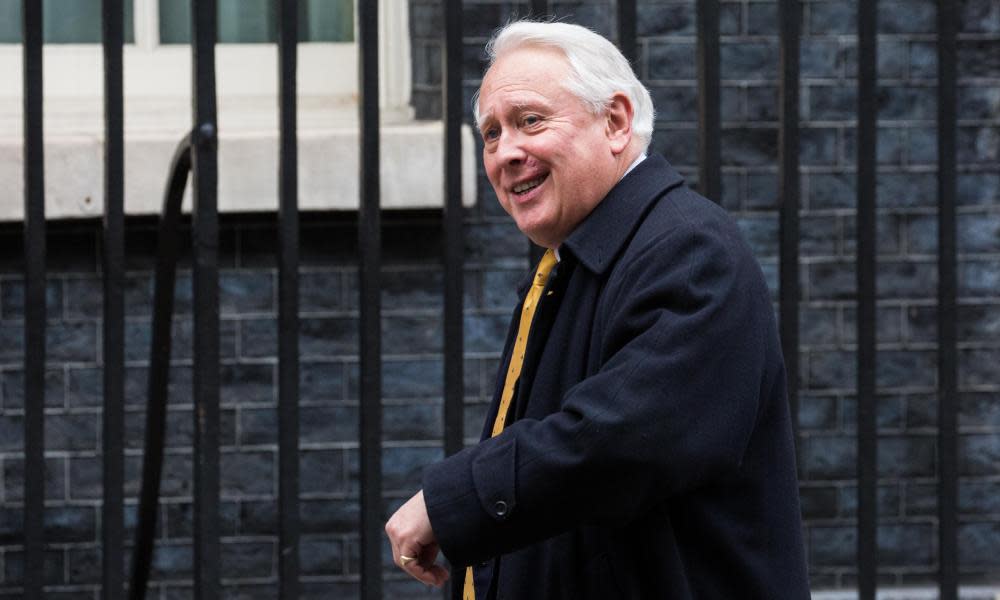Tory rebel seeks ‘meaningful vote’ over Northern Ireland protocol bill powers

A leading Conservative rebel has launched an attempt to force Boris Johnson to seek permission from parliament before using powers in the Northern Ireland protocol bill.
Sir Bob Neill, the chair of the justice committee, tabled an amendment on Tuesday that would require “parliamentary approval for bringing into force any provisions” of the legislation, which would unilaterally rip up Brexit arrangements for Northern Ireland at the risk of a trade war with the EU.
Neill’s proposal would effectively introduce a “meaningful vote” for MPs before Johnson could use powers in the bill, which has caused controversy because of allegations it would break international law.
Nikki da Costa, a former No 10 adviser on legislative affairs, suggested it would mean that the “meaningful vote is back” – a reference to Theresa May’s need for parliament to vote in favour of her Brexit deal before it could be approved.
Dozens of Tories, including May, abstained from voting on Johnson’s legislation at its second reading, but it is unclear how many would back Neill’s attempt to secure parliamentary approval at the next stage of the legislation in the House of Commons.
Neill’s amendment may also not be enough to satisfy Labour, whose shadow foreign secretary, David Lammy, said the bill was illegal and would shred the UK’s international reputation as a law-keeper.
The legislation now moves to more detailed debate at its committee stage in the House of Commons, which is an opportunity for MPs to amend the proposed bill before summer recess.
It will then move to the House of Lords, where there is considerable concern about the bill.
A vote in the House of Lords is not expected until October, but leading peers warned that even if Neill’s amendment was passed, it was unlikely to be enough to satisfy critics concerned that the legislation would break international law.
Peter Hain, a Labour peer and former Northern Ireland secretary, said: “It will not come anywhere near meeting the needs that are likely to be demanded by Lords on a crossbench basis. I don’t think it approaches the issue.
“There is the whole question of international law and it being broken, which has crossbenchers – former high court judges and others – up in arms. The whole legislation is dogwhistling to the Tory base rather than a serious approach to negotiation.”
However, a Labour source in the House of Lords cautioned that it was not certain there were enough Labour, Liberal Democrat, crossbench and Tory rebel peers to block the legislation, as Johnson has appointed more allies to the upper chamber in recent years.
The second reading of the bill on Monday was the first opportunity for MPs to vote on the proposals – which, the foreign secretary, Liz Truss, said, were “legal and necessary”.
Johnson predicted earlier on Monday that the laws could go through “fairly rapidly” and be on the statute books by the end of the year. But if the Lords makes changes or attempts to block the bill entirely, it could be another year before the legislation makes it on to the statute book. This is because the government would have to deploy the Parliament Act, which forces through a bill without permission from the Lords after a year.

 Yahoo Movies
Yahoo Movies 
